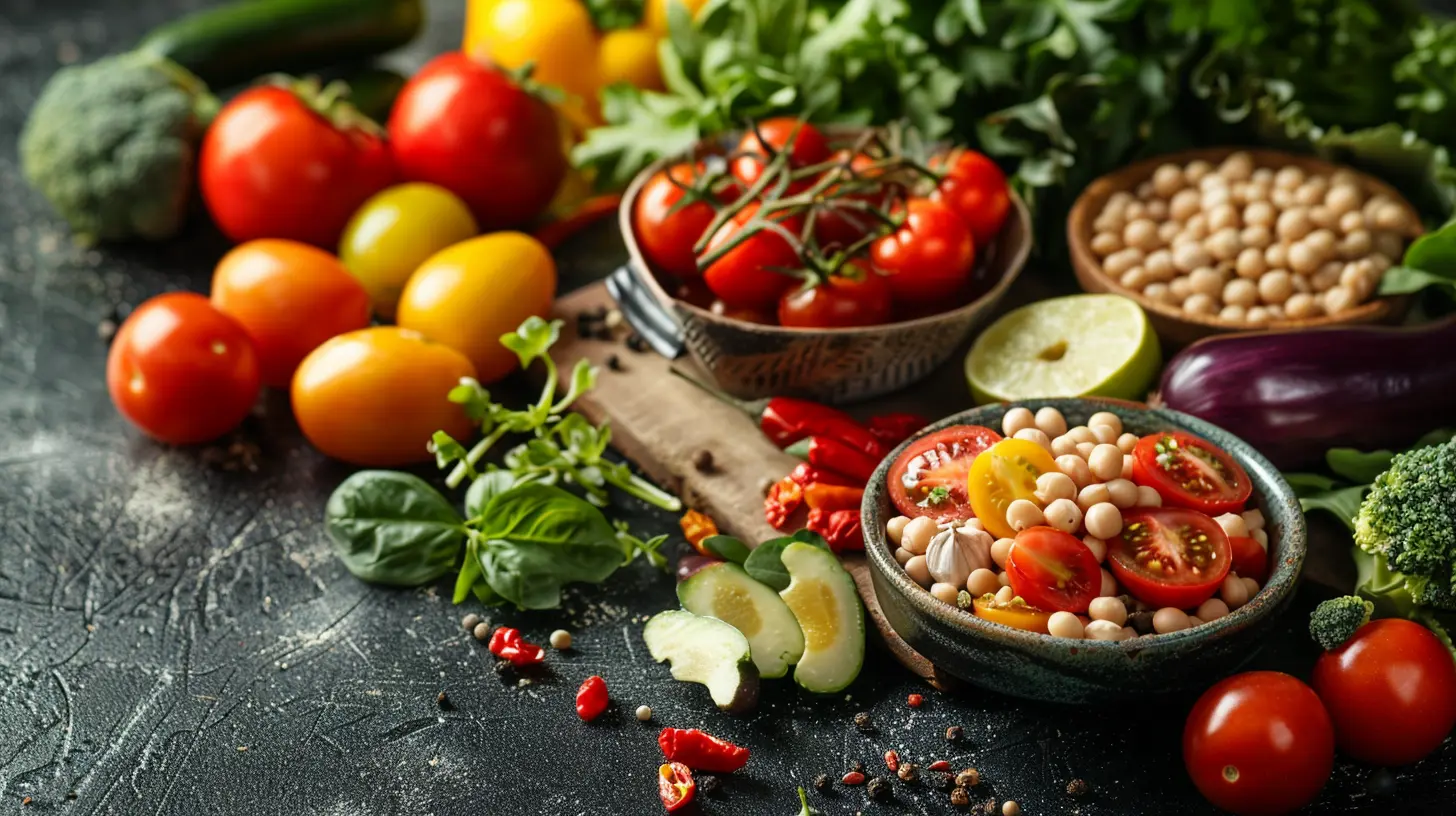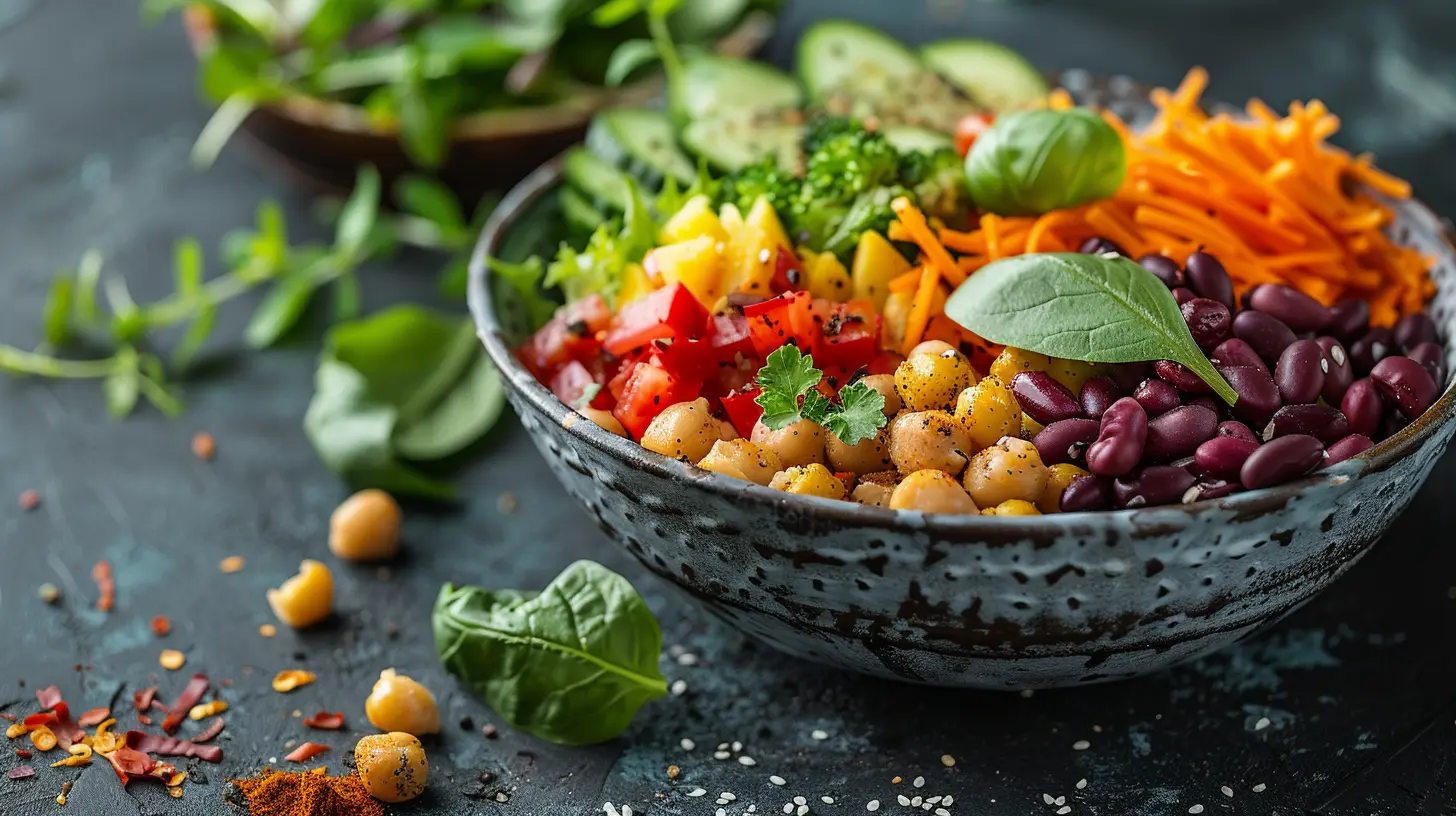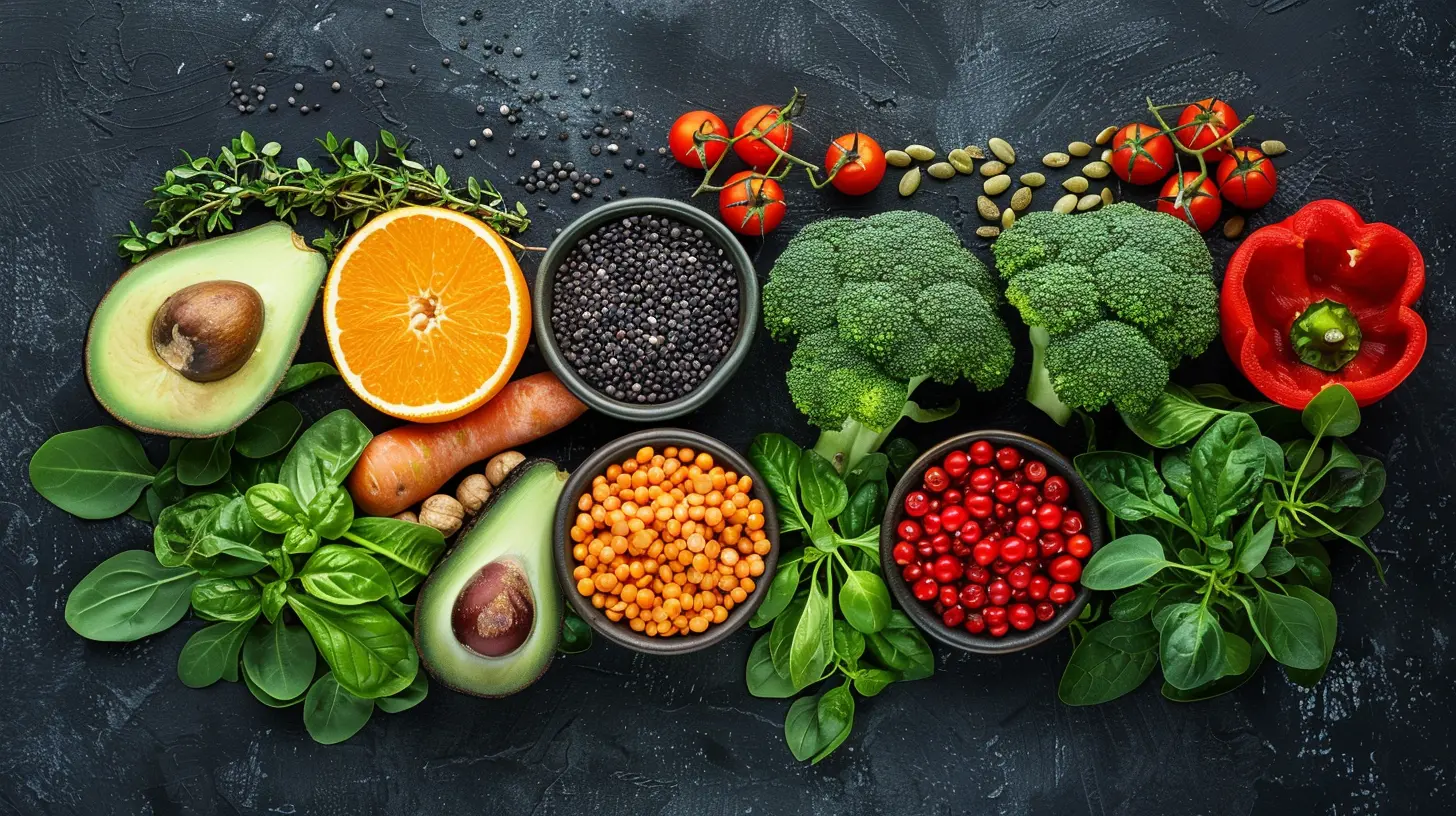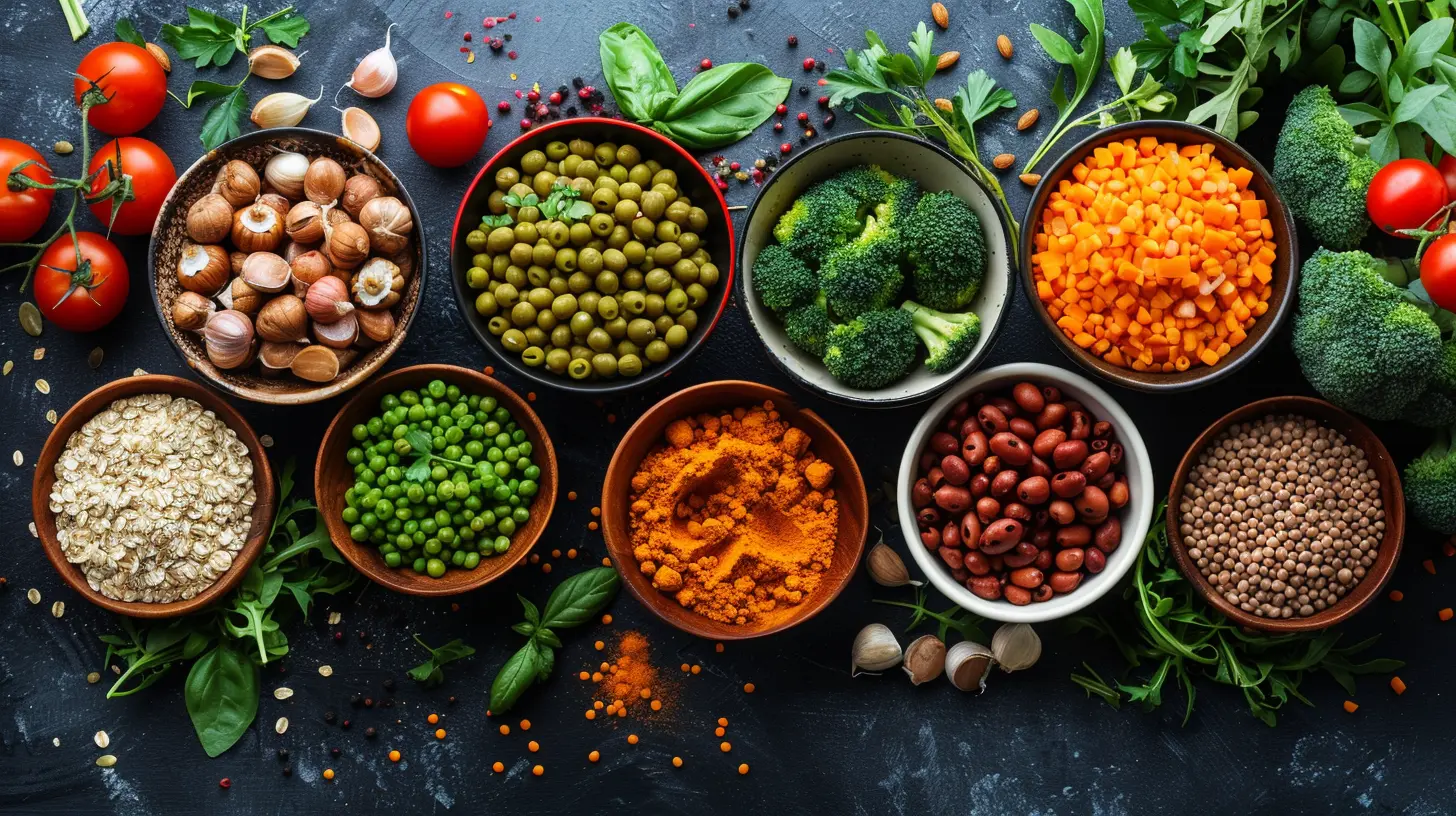Transitioning to a Vegan Diet: Essential Tips for Beginners
12 September 2025
Thinking about going vegan but don’t know where to start? You're not alone! Shifting to a plant-based lifestyle can feel overwhelming, but with the right approach, it can be a smooth and enjoyable journey. Whether you're doing it for health, ethical reasons, or environmental concerns, this guide will walk you through essential tips to make transitioning to a vegan diet easy and sustainable. 
Why Go Vegan?
Before diving into the "how," let's talk about the "why." People go vegan for various reasons, but here are some of the biggest motivators:- Health Benefits – A well-planned vegan diet can lower your risk of heart disease, improve digestion, and boost energy.
- Animal Welfare – Many choose veganism to avoid contributing to animal suffering in the food industry.
- Environmental Impact – A plant-based diet reduces greenhouse gas emissions, conserves water, and decreases deforestation.
Whatever your reason, transitioning the right way will ensure you stick with it for the long haul. 
1. Take It One Step at a Time
Going vegan overnight might work for some, but for most people, gradual changes are more sustainable. Instead of ditching all animal products at once, try this approach:- Start with Meatless Mondays – Dedicate one day a week to eating only plant-based meals.
- Swap Out Dairy First – Replace cow’s milk with almond, oat, soy, or coconut milk.
- Transition Meal by Meal – Focus on making your breakfast fully vegan, then move on to lunch, and finally dinner.
Small, manageable changes will help prevent feelings of restriction or overwhelm. 
2. Educate Yourself on Nutrition
A balanced vegan diet provides all the nutrients your body needs—if done correctly. Here are some key nutrients to focus on:- Protein – Found in lentils, quinoa, tofu, tempeh, beans, and chickpeas.
- Iron – Get it from spinach, lentils, pumpkin seeds, and fortified cereals. Pair with vitamin C for better absorption!
- Vitamin B12 – Essential for energy and brain function. Since it's mostly found in animal products, take a supplement or eat fortified foods.
- Omega-3s – Chia seeds, flaxseeds, hemp seeds, and walnuts are all great sources.
- Calcium – Fortified plant milk, tahini, almonds, and leafy greens can keep your bones strong.
Knowing where to get these nutrients will prevent deficiencies and ensure you feel your best. 
3. Find Delicious Vegan Alternatives
Let's be real—giving up your favorite foods can be tough. The good news? There’s a vegan version of almost everything!- Craving cheese? Try cashew-based cheeses or nutritional yeast for a cheesy flavor.
- Missing burgers? Beyond Meat, black bean patties, and lentil burgers are great options.
- Love ice cream? Dairy-free brands like Ben & Jerry’s, So Delicious, and Oatly have got you covered.
Experiment with different brands until you find what you love.
4. Make Your Grocery Shopping Vegan-Friendly
Stocking your kitchen with vegan staples makes cooking easier and helps you stick to your new lifestyle. Some must-haves:✅ Grains: Brown rice, quinoa, oats, whole wheat pasta
✅ Proteins: Lentils, beans, chickpeas, tofu, tempeh
✅ Healthy Fats: Avocados, nuts, seeds, olive oil
✅ Dairy Alternatives: Almond or soy milk, dairy-free yogurt
✅ Snacks: Hummus, trail mix, popcorn, dark chocolate
Shopping tip: Stick to the perimeter of the grocery store—this is where you'll find whole, unprocessed foods!
5. Learn How to Read Labels
Animal-derived ingredients can sneak into unexpected foods. Look out for:🚨 Gelatin (in gummy candies and marshmallows)
🚨 Casein and whey (in some dairy-free cheeses)
🚨 Carmine (red food coloring made from insects)
🚨 Lard (found in some baked goods and refried beans)
If you're unsure, apps like "Is It Vegan?" can help you quickly check ingredients while shopping.
6. Plan Your Meals in Advance
Meal planning saves time, reduces food waste, and prevents those “what do I eat now?” moments. Try:- Batch Cooking – Make large portions of soups, curries, or grain bowls and store them for the week.
- Simple Swaps – Replace animal-based ingredients in your favorite recipes with plant-based alternatives.
- Prep Snacks – Have hummus, fruit, trail mix, or energy bars ready to curb hunger between meals.
Having a game plan makes it easier to stick to your vegan goals.
7. Dine Out Without Stress
Eating out as a vegan doesn’t have to be a hassle. Here’s how to make it easier:- Check the Menu in Advance – Most restaurants post their menus online.
- Ask for Customizations – Many places are happy to modify dishes to fit your needs.
- Try Ethnic Cuisines – Indian, Thai, Mediterranean, and Mexican restaurants often have fantastic vegan-friendly options.
Many restaurants now offer dedicated vegan menus—just ask!
8. Ignore the Naysayers and Stay Confident
Not everyone will understand or support your decision. You might hear,"But where do you get your protein?" or "Humans need meat!"
Instead of getting frustrated, stay confident in your choices. Share what works for you without forcing others to agree. Over time, your commitment might even inspire others!
9. Connect with the Vegan Community
Support makes all the difference. Surround yourself with like-minded people by:- Joining vegan Facebook groups or Reddit communities
- Following vegan influencers for meal inspiration
- Attending vegan meetups or potlucks
Having a support system keeps you motivated and makes the transition more enjoyable.
10. Be Kind to Yourself
Nobody is perfect, and slip-ups happen. Ate something non-vegan by mistake? Craved cheese and had some? It’s okay! What matters is your effort and long-term commitment.Instead of beating yourself up, focus on progress, not perfection. Every plant-based choice helps, so keep going!
Final Thoughts
Transitioning to a vegan diet doesn’t have to be overwhelming. Take small steps, educate yourself, experiment with new foods, and stay patient with yourself. The benefits—better health, a lighter environmental footprint, and a cruelty-free lifestyle—are worth it.Remember, it’s not about being perfect; it’s about making choices that align with your values and well-being. So take your time, enjoy the process, and embrace the journey to a vibrant, plant-based life!
all images in this post were generated using AI tools
Category:
Vegan DietAuthor:

Laura Hudson
Discussion
rate this article
1 comments
Trevor Evans
Going vegan? Welcome to the plant-powered party! 🎉 Remember, carrots can’t dance yet, but they sure know how to spice up a salad. Embrace those leafy greens, and don’t forget to hug your new tofu buddies. Your taste buds will thank you for the wild ride ahead! 🌱🥑
October 7, 2025 at 4:11 PM

Laura Hudson
Thank you for the warm welcome to the vegan journey! Embracing new flavors and ingredients is all part of the fun. Let's get those taste buds dancing! 🌱🥗


